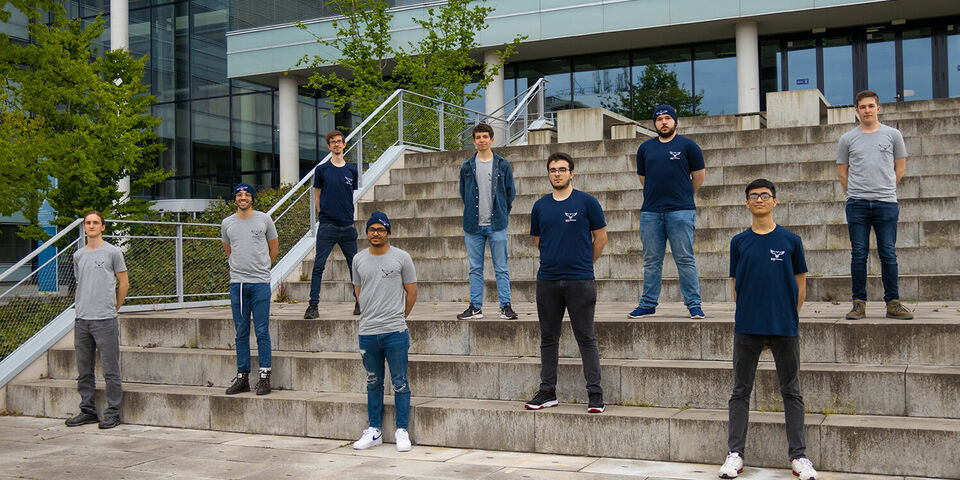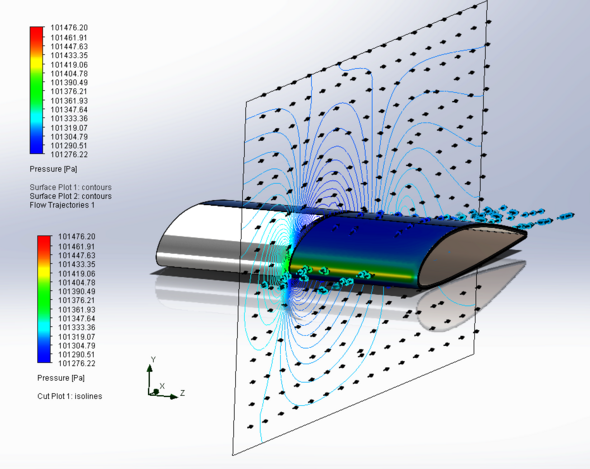Student team Daedalus makes a drone that can fly forever
A drone that can fly forever, that’s what student team Daedalus is working on. The solar-powered autonomous drone generates its own energy. It simultaneously stores some of this energy for when it flies without sufficient sunlight. Theoretically, this allows the drone to remain airborne indefinitely.
Electrical Engineering student Daniel Riechmann took the course E3 Challenge 1 a few months ago. During this course, students work on solutions to real-life problems, so-called challenge-based learning. Riechmann’s group focused on satellite communication. The subject and the way of working was a huge success, and the group decided to set up a student team. In February of this year Team Daedalus was officially launched, after which it joined TU/e Innovation Space.
Bottleneck
The students now focus their attention exclusively on the development of a solar-powered drone.“Of course, there are a number of student teams, start-ups and major companies currently working on drones. The flight time of these drones is usually what constitutes the bottleneck in their development,” Riechmann says. “A drone can only stay airborne for a limited number of hours, after which it needs to land to recharge. That makes the use of drones less efficient. We try to solve that problem by placing solar panels on the drone so that it is capable of making autonomous flights for prolonged periods of time.”
Riechmann first saw the idea implemented in 2015 by Atlantik Solar, an experimental solar-powered aircraft project from Switzerland. “Researchers had developed a drone with solar panels that was capable of an 81-hour flight. It had to land at a certain moment because of bad weather, otherwise it could have stayed airborne for much longer.” At the time, an 81-hour continuous flight was a world record.
Camera
The Swiss project served as Riechmann’s inspiration for the new student team. “That drone was very lightweight and designed as aerodynamically as possible, naturally. This meant that it couldn’t carry much technology, rendering is rather useless in practice,” he says. “Technology, such as solar panel technology for example, has advanced significantly since 2015.” Team Daedalus’ drone has an onboard camera that can collect valuable data. “Atlantik Solar’s data is open source, which means that we can build on that,” he says.
Wildfires and poaching
Riechmann wants to use the new drone in particular to help NGOs combat pressing issues in society. Construction is among the application areas the team is currently looking into. “We’ve had exploratory talks with Royal BAM Group (a leading Dutch construction company, ed.),” Riechmann says. One of the purposes for which the drone can be used is securing construction sites against theft.
Apart from that, there are a number of other high-impact applications for the drone, Riechmann believes. “It can detect wildfires at an early stage, and it can also look for refugees at sea or for poachers in nature reserves. And it can do this much faster than patrols by people in boats or cars,” he says. In addition, flying a drone is much cheaper compared to what is currently possible with patrols.
First-year students
The students want to present their first prototype at the end of next year. “We will make three different drones for that. This will allow us to test various technologies, such as the solar panels and the cameras,” Riechmann says.
“There are currently nine passionate first-year students on the team,” he continues. A student team made up exclusively of first-year students is quite unique. The team has been selected for the finals of the TU/e Contest and for Crossborder Entrepreneurial Energy Education (CE3). Through these projects, the team will also be offered coaching.
5G hub
“Thanks to the preparations for the TU/e Contest, we now have a robust business case, for example,” Riechmann says. The team is currently considering two different revenue models. The students want to sell the solar-powered drones, or rent them out to NGOs. The team leader wants to further investigate both options in the coming period. “That’s why it’s very important to have a user-friendly drone,” he says. Team Daedalus will probably soon join the 5G hub on the High Tech Campus. “The drone will work with a 4G or 5G connection in first instance. We can test that here.”
Riechmann’s ultimate goal? “We want to have an impact on the lives of as many people as possible with our drones. I would prefer to realize that by bringing a successful product to the market ourselves, just like the well-known start-up Lightyear did.”



Discussion